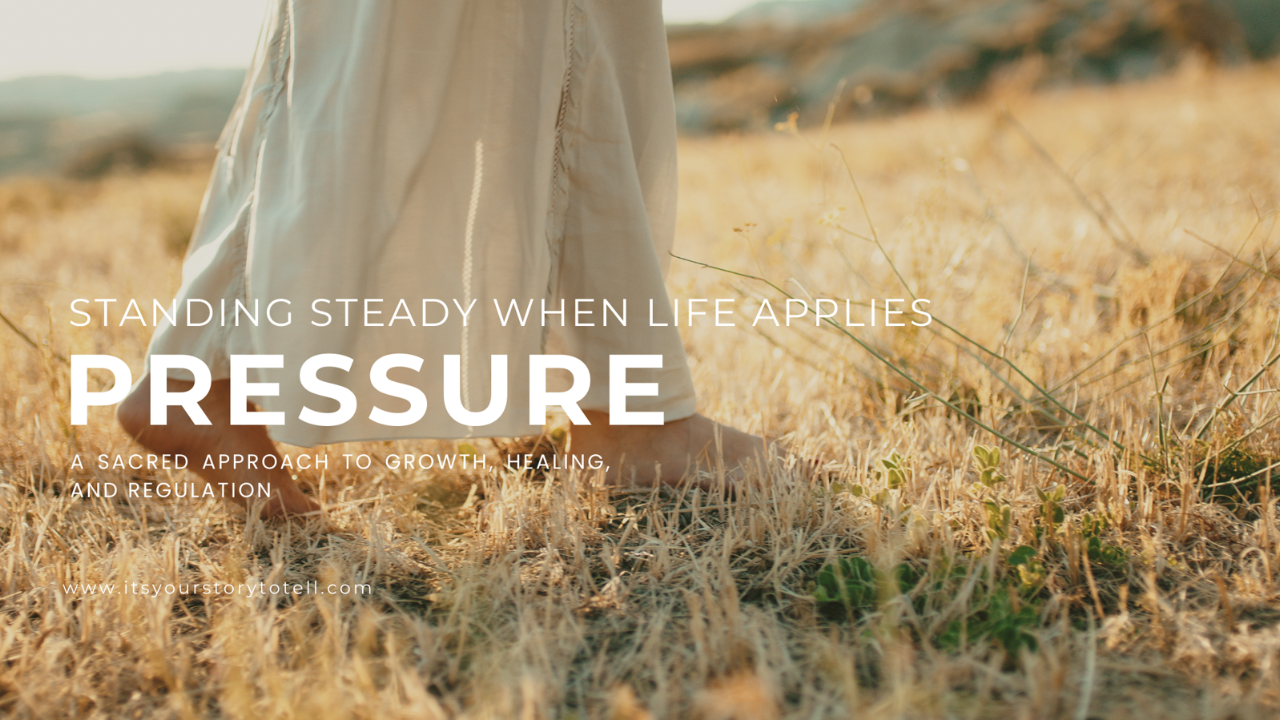How Our Past Affects Our Future: The Trauma Cycle & the Power We Have to Break It
Apr 02, 2023
Until I started my trauma transformation journey and research, even as a nurse, I did not know that trauma is the #1 reason people seek health and social services.
I was shocked when I read Dr. Robert Block, former president of the American Academy of Pediatrics, proclaiming in 2018, "Adverse Childhood Experiences (ACEs) are the single greatest unaddressed public health threat facing our nation today."
On top of that, research from the Adverse Childhood Experiences Study (ACES) by Kaiser Permanente and the Center for Disease Control reveals that adults will have an increased risk of substance abuse disorder, mental health problems, chronic physical health issues, and a shorter life span. Discovering this made me think differently about my role in healthcare and led me to become a life coach specializing in trauma transformation.
Some key findings in the study by Kaiser revealed:
- By age sixteen, approximately two-thirds of adolescents reported experiencing at least one traumatic event.
- More than 50% of households in the United States have gone through a disaster.
- Around 70% of adults in the United States have experienced a traumatic event, and 20% have developed PTSD.

Individually and societally, we must take decisive action to confront and resolve the trauma before the cycle spirals out of control and we reach a breaking point.
The long-term effects of trauma on the body and mind can be far-reaching and devastating. Trauma can cause physical and psychological changes in the body, such as an increased heart rate, higher blood pressure, changes in sleep patterns, and difficulty concentrating.
It can also influence changes in behavior, such as increased aggression, difficulty forming relationships, difficulty controlling emotions, and avoiding people or activities that remind them of the traumatic event.
According to the renowned author and philosopher Alain de Botton, those who have been traumatized are primarily filled with fear. As a result of trauma, for example, anxiety can be triggered by getting close to others, being abandoned, humiliated, disgraced, falling ill, having sex, traveling, social interactions, and even common world events. Some trauma can be evident with a clear cause and symptoms, but others can hide without an obvious trace of its origin. The causal event may have occurred anywhere from a week to up to half a century ago.
I don't know about you, but the word "trauma" always brought horrible things to mind. But then I learned you don't need severe abuse to become traumatized.
A dictionary definition of trauma is “a deeply distressing or disturbing experience.” It can be life-threatening, but that is not a requirement for it to be classified as trauma. But, the outcome of trauma is lasting adverse effects on one's mental, physical, and emotional health and social and spiritual well-being.
Events like divorce, illness, accidents, and bereavement to intense experiences of war, torture, genocide, and emotional, physical, and sexual abuse could all fall within the spectrum of traumatic experiences.
The unhealed wounds, fear, sadness, anger, harmful coping mechanisms, false limits, and negative beliefs will never go away until addressed. These traumatic events and experiences prevent us from living our desired life because of the programming that occurs in our brain in the period following when we do not have the support, love, and connection to navigate them.
Overall, Trauma can present itself in varying degrees.
In mental health, traumatic experiences are often differentiated and classified as either significant or minor incidents - big T and little t traumas, respectively. The concept is that specific traumatic experiences can be more intense and severe than others.
All forms of trauma, regardless of categorization, can adversely impact our lives. Experiencing traumatic stress can trigger a chain of events resulting in the development of various mental health and co-occurring disorders such as PTSD, depression, anxiety, substance abuse, and physical problems.
In my practice, we do not differentiate between major traumatic events (big T trauma) and minor traumatic events (little t trauma) so people are not hurt further by their experiences being dismissed. Part of the reason is due to my personal experience overcoming my trauma but also my experience of helping hundreds process theirs. The crucial aspect is the traumatic incident's effect on the person and how it still impacts their daily existence, not whether their event was big enough. What occurred internally is what truly matters rather than what took place externally.
Weighing whether my trauma was significant enough is why I believe it was so hard to identify it. I was being controlled and sabotaged by little t, which compounded into Big T over time. Meanwhile, I’ve always wondered how I ended up here. It wasn’t until I began understanding trauma and getting curious that I could identify three clear memories before the age of eight, where I’d developed narratives, beliefs, and ways of engaging with others, resulting in vulnerability to people-pleasing and ongoing traumatic relationships.

Passing down trauma.
As trauma has become more widely studied, more research on the effects of our genetics has been evaluated, and links have been established to how trauma can result in epigenetic changes.
Epigenetics is how our environment, experiences, and lifestyle can affect our genetic expression without changing the underlying DNA sequence. The potential of epigenetics to alter our perception of the past, present, and future makes it a fascinating area of study.
Genetic changes occur by altering the chromatin, which is the packaging of DNA in the cell's nucleus and has far-reaching implications for both research and clinical work in the field of trauma. These changes can affect a person's risk of developing certain illnesses, treatment responses, and behavior.
These studies provide more knowledge on how our past experiences may affect our future, enabling us to make healthier choices. Understanding this concept can aid us in realizing the lasting effects of trauma on our decisions, lifestyle choices, physical and mental health, and the impact on future health.
Epigenetic changes can also result in a person not experiencing the event where the genetic differences get passed down. Various factors, such as diet, stress, and exposure to toxins, can also lead to epigenetic changes, altering the expression of genes passed from generation to generation.
Think about how many times we hear anxiety runs in our family. Often mental and physical health diagnoses are passed down due to someone else's past. Physical conditions like obesity, diabetes, cardiovascular disease, and even addictions can pass down because our environment has a way of sticking until someone is brave and decides to break the cycle.
Here are a few steps you can take to begin healing your trauma.
Accepting that unhealthy behavior is a sign that something is wrong and needs our attention to heal is the first step to transformation. As a survivor of trauma, I know revisiting memories can be painful. If you are like I was, you have been living to avoid talking about it or acknowledging its impact on your life for a while. However, when we avoid them, we ignore the brain's way of alerting us that something is wrong.
After that, observe and recognize your triggers and find the areas that keep you stuck. As I practiced this work in my own life, I could follow my triggers and negative emotions to the root cause of the development of narratives and beliefs that led to me becoming vulnerable to abuse and sabotaging my life for far too long.
My work is breaking a cycle of trauma passed through generations, including by me, to my kids. You are the hope for the future and can be part of the solution to our nation's greatest unaddressed public health threat.

Healing trauma does not happen alone.
Seek help to address trauma's physical and mental effects and develop healthy coping strategies. Lifestyle changes such as exercise and dietary changes can help people manage their stress levels and reduce their addiction. With the proper support, people can learn to manage their symptoms and move forward with their lives.
One way to prevent generational trauma is to create a safe and supportive environment for children and adolescents by providing them with a stable home life, quality education, and a solid support system. Teach children healthy coping skills to manage difficult emotions and provide them with access to mental health services when needed. Create a culture of openness and acceptance so children feel comfortable discussing their experiences and seeking help.
“Healing from trauma is virtually impossible to do on your own. When you have spent years trying to avoid, run, forget, or fake it, you need a fresh perspective to get to the root of what is holding you back.” ~ Megan Babcock
xoxo, Megan
PS. Subscribe to our weekly blog and enjoy a FREE resource related to the topic to support your journey. Like & follow us on social media for more content to encourage, inspire, and offer you insight!
View The Entire Collection
See all our blog posts to discover valuable insights and tools for navigating trauma and healing with guidance and support.













